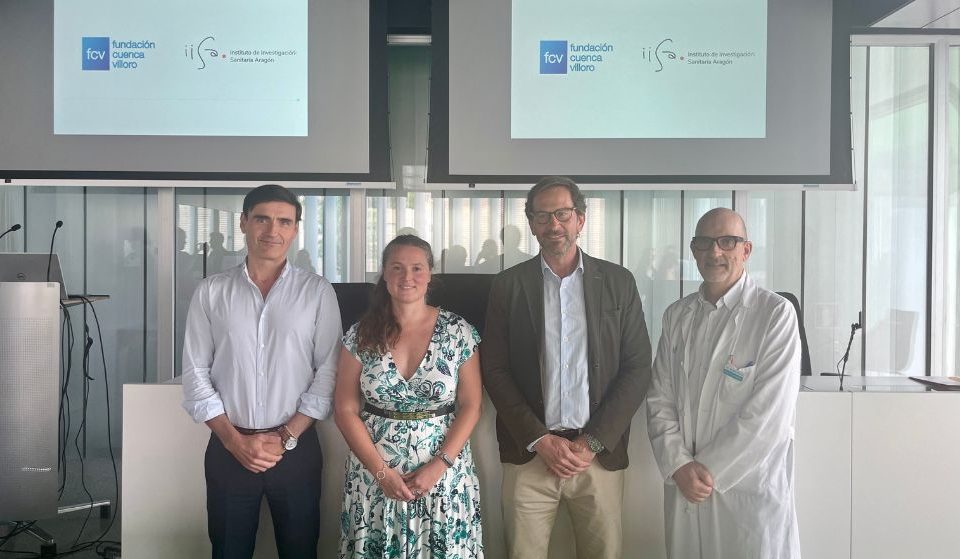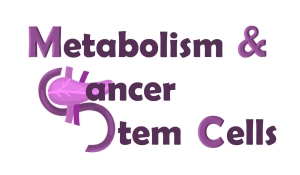[ES]
¡¡Tenemos buenas noticias!! La semana pasada, la Fundación Cuenca Villoro (FCV) nos concedió una ayuda a la investigación para que comencemos un nuevo proyecto: Validación de la inhibición mitocondrial como nueva estrategia terapéutica en modelos preclínicos avanzados de meduloblastoma. En este post queremos contaros en qué va a consistir nuestro trabajo, y cómo hemos llegado hasta aquí.
A pesar de que nuestro laboratorio está especializado en el estudio del cáncer de páncreas, hace casi dos años asumimos el emocionante reto de abrir una línea de investigación sobre el meduloblastoma, el tumor cerebral maligno más frecuente en niños. Gracias a ASPANOA, estamos estudiando cómo atacar al meduloblastoma utilizando distintos inhibidores metabólicos, y hemos conseguido algunos resultados muy prometedores.

Sin embargo, esto no es tan simple como parece… Trabajando en este proyecto, nos hemos dado cuenta de que, al igual que sucede en otros tipos de cáncer, hay un problema: los modelos que se utilizan actualmente en el laboratorio no representan bien la enfermedad.
Solucionar esto es el principal objetivo de nuestro nuevo proyecto. Queremos encontrar nuevos modelos que simulen mejor el meduloblastoma, para lo que vamos a utilizar dos estrategias distintas:
-Generaremos organoides derivados de pacientes: cultivos 3D con una estructura más parecida al tumor original. Para esto contaremos con la ayuda del BSSA (Biobanco del Sistema de Salud de Aragón).
-Cultivaremos nuestras células dentro de chips: dispositivos microfluídicos que simulan mejor el entorno del tumor. Estos chips los haremos en colaboración con el grupo de José Manuel García Aznar, con quien ya trabajamos actualmente.
De esta forma, una vez consigamos nuestro objetivo, podremos comprobar si los inhibidores que nos han funcionado hasta ahora también dan buenos resultados en nuestros nuevos modelos, mucho más avanzados que los actuales. Además, estos también podrían ser utilizados en otras investigaciones futuras, facilitando el estudio de este tumor tan poco estudiado.
Queremos agradecer a la FCV que nos haya dado esta oportunidad. ¡Estamos deseando empezar con este emocionante proyecto!
[EN]
We have great news!! Last week, the Fundación Cuenca Villoro (FCV) awarded us with a research grant to start a new project: Validation of mitochondrial inhibition as a new therapeutic strategy in advanced preclinical models of medulloblastoma. In this post we want to explain you what our work will consist of, and how we got here.
Although our laboratory is specialized in the study of pancreatic cancer, almost two years ago we assume the exciting challenge of opening a line of research on medulloblastoma, the most common malignant brain tumor in children. Thanks to ASPANOA, we are studying how to target medulloblastoma using different metabolic inhibitors, and we have got some very promising results.

However, this is not as simple as it seems… Working on this project we have realized that, in the same way as other types of cancer, there is a problem: the models currently used in the laboratory do not properly represent the disease.
The main objective of our new project is to solve this. We want to find new models that more accurately simulate meduloblastoma. To achieve this we will use two different approaches:
-We will generate patient-derived organoids: 3D cultures with a more similar structure to the original tumor. For this we will have the help of the BSSA (Biobanco del Sistema de Salud de Aragón).
-We will grow our cells inside of chips: microfluidic devices that better simulate the tumor environment. These chips will be made in collaboration with José Manuel García Aznar’s group, with whom we are already working.
In this way, once we achieve our objective, we will test whether the inhibitors that are promising continue working in our new models, which are much more advanced than the current ones. In addition, these could also be used in future research, helping to the study of this unknown tumor.
We would like to thank FCV for giving us this opportunity. We are looking forward to starting this exciting project!
